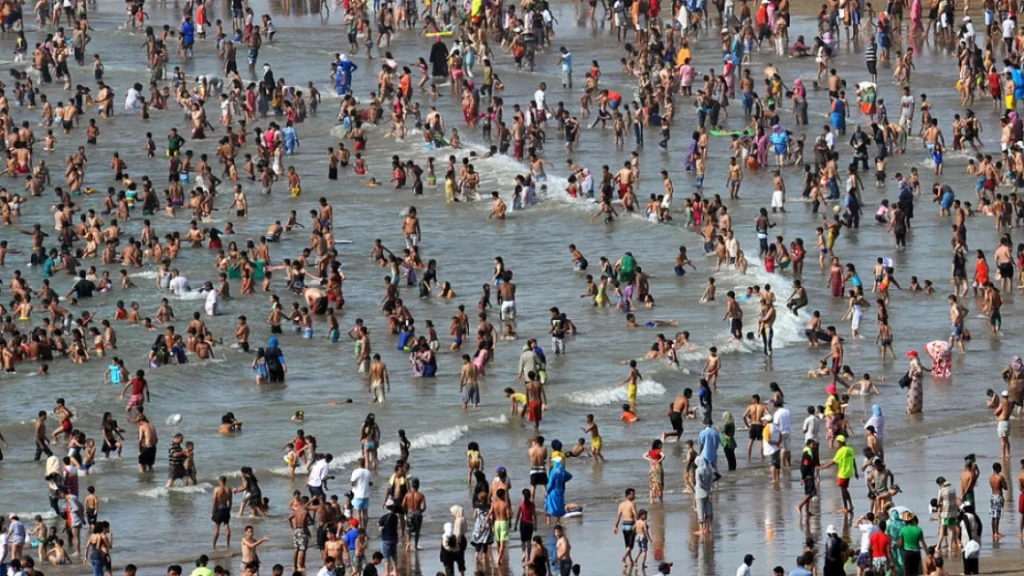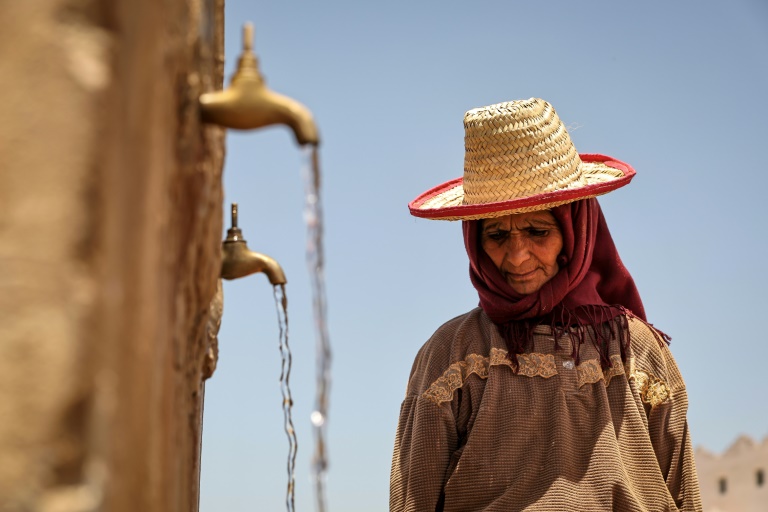Morocco is currently in the grip of an intense heatwave that has claimed more than 20 lives in the past 24 hours in the central city of Beni Mellal, according to the country’s health ministry. This tragic toll underscores the severe impact of extreme weather conditions on vulnerable populations and highlights the urgent need for climate adaptation measures.

Meteorologists report that temperatures soared to a scorching 48 degrees Celsius in some areas of the country between Monday and Wednesday. The relentless heat has put immense strain on public health services and infrastructure, with the elderly and those with chronic illnesses being particularly at risk.
Officials have stated that the majority of the deceased were either elderly or suffering from pre-existing health conditions, with the extreme heat exacerbating their vulnerabilities. In response to this crisis, authorities have issued urgent advisories to the public, urging citizens to stay hydrated by drinking plenty of water and to avoid venturing outdoors during peak heat hours.
Beni Mellal, located more than 200 kilometers southeast of Casablanca, continues to experience dangerously high temperatures, with Thursday’s readings still reaching 43 degrees Celsius. However, there is a glimmer of hope as meteorologists predict a gradual easing of the heatwave across the country in the coming days. In the popular tourist destination of Marrakesh, temperatures are expected to drop by a significant 10 degrees by Sunday, offering some relief to residents and visitors alike.

This heatwave is not an isolated incident but part of a larger pattern of climate change affecting Morocco and the wider region. The country is currently enduring its sixth consecutive year of drought, with the past winter being the hottest since records began in 1940. These prolonged periods of extreme heat and lack of rainfall have had far-reaching consequences, particularly for Morocco’s vital agricultural sector.
The combination of rising temperatures and persistent drought has led to alarmingly low water levels in reservoirs across the country. This water scarcity poses a severe threat to Morocco’s farming industry, a crucial component of the national economy. The situation highlights the urgent need for sustainable water management practices and climate-resilient agricultural strategies.
The severity of Morocco’s heatwave is part of a global trend of record-breaking temperatures. The European Union’s Copernicus Earth observation programme recently announced that this past Monday was the hottest day ever recorded since measurements began. This sobering fact aligns with predictions that daily temperature records will continue to be broken throughout the summer in the Northern Hemisphere, a direct consequence of ongoing climate change.

As Morocco battles this heatwave, the incident serves as a stark reminder of the immediate and tangible impacts of climate change. The loss of life in Beni Mellal underscores the human cost of extreme weather events and the urgent need for robust climate adaptation and mitigation strategies.
Looking ahead, Morocco faces the dual challenge of addressing the immediate health crisis caused by the heatwave while also developing long-term solutions to combat the effects of climate change. This may include investing in heat-resistant infrastructure, improving early warning systems for extreme weather events, and implementing water conservation measures to mitigate the impact of prolonged droughts.
The situation in Morocco is a microcosm of the global climate crisis, demonstrating how rising temperatures can have devastating effects on human health, agriculture, and water security. As the world continues to grapple with the realities of climate change, the events unfolding in Morocco serve as a poignant reminder of the urgent need for collective action to address this global challenge.



